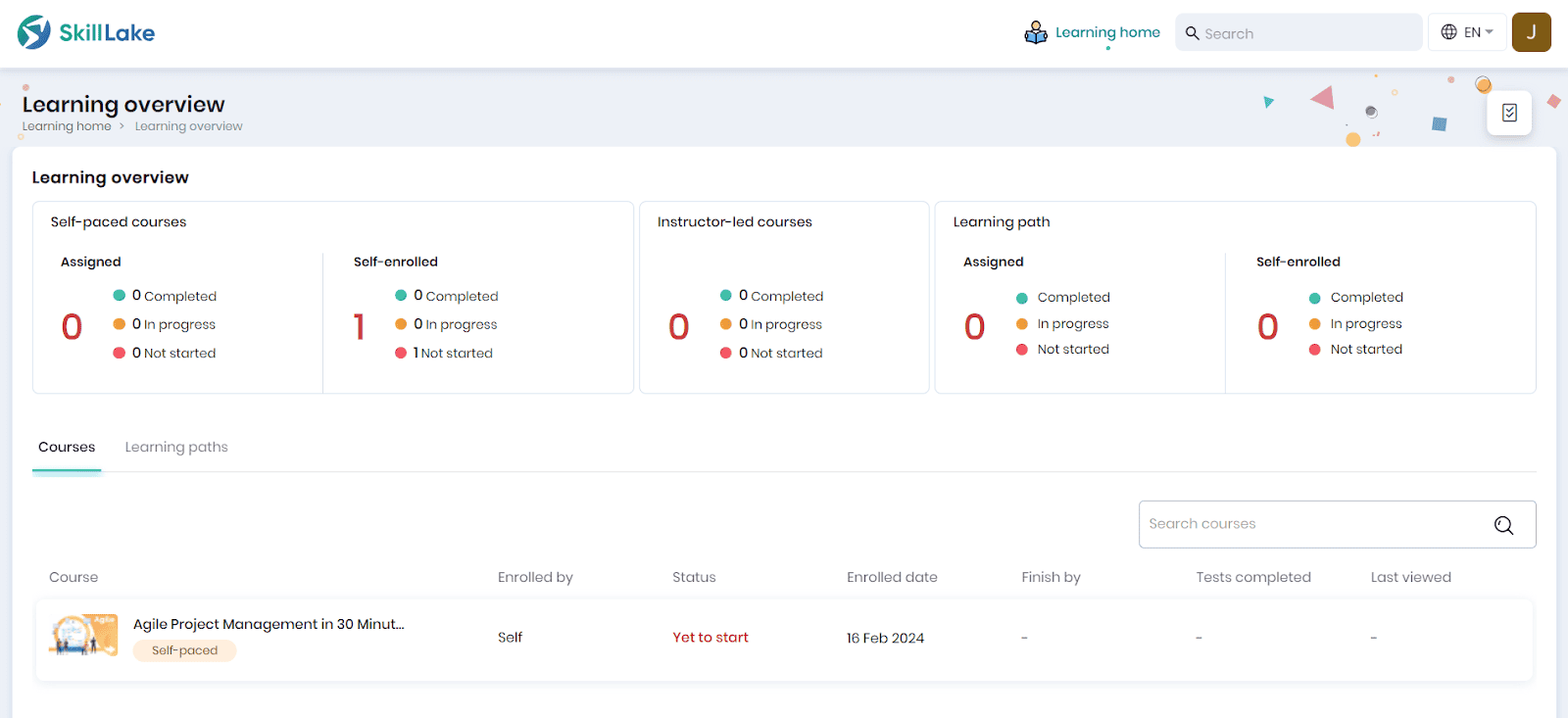The Power of LMS for Non-Profits

The civil society or not-for-profit sector employs close to 20 million people worldwide. Training non-profit staff and volunteers is critical with the constantly evolving technologies and strategies. While society leaders are increasingly turning to Learning Management Systems for Non-Profits to improve internal, managerial, and technical capabilities, the application of eLearning in this sector extends far beyond employee training.
One prominent issue that non-profit training faces is working with a limited budget. This budget pays salaries and admin expenses and is also used to train staff, contributors, board members, and volunteers on vital topics. Such training can be costly and time-consuming. This is where eLearning becomes a critical aspect of every organization. Innovative organizations worldwide have started designing and implementing eLearning and blended learning programs to educate and equip the workforce to help themselves better utilize their financing sources.
How to Empower LMS for Non-Profits
We have identified four present and emerging models underlying the use of eLearning by civil society organizations.
I. Management of Internal Personnel and Technical Training
Companies rely on online workshops to train employees more easily and cost-effectively. International organizations use online learning programs to train workers in faraway chapters or overseas field locations.
II. Advocacy and Communication
eLearning and reference tools have become vital for effective advocacy and communication campaigns. They allow— organizations to educate and teach stakeholders about campaigns, issues, significance, and the organization’s stance in a timely and cohesive manner.
III. Educational Service Provision
Online learning provides a scalable new medium for public awareness and instructional campaigns for organizations.
IV. Volunteer Training and Retention
Online briefings, training, and evaluation sessions provide a new approach to training and supporting volunteers. When used in conjunction with excellent volunteer management practices, these technologies can considerably extend an organization’s potential pool of volunteers. In addition, making training and assistance more accessible can result in additional possibilities for valuable competencies.
Features Tailored for Non-Profit Learning Management Systems
Looking at a few critical elements that all non-profit LMSs should have.
- Easy-to-use interface
- Multi-device responsiveness
- Content authoring
- Analytics dashboards and reports
- Numerous support options
- Channels for social learning
These are the essential prerequisites of a non-profit LMS. However, before making a final decision, assessing how the LMS relates to these features is critical.
Our Enterprise Management Platform, Skill Lake, offers all these essential features and more. Moreover, this enterprise IT-ready system uses blended learning for user convenience and skill upgrades.
Leveraging eLearning Through Non-Profit Learning Management Systems
1. Helps Utilize Resources
Every volunteer must be trained before work is assigned to them. The one-on-one coaching approach is quite taxing for the trainer in a non-profit setup due to the limited staff and multiple responsibilities. This is where eLearning can help you! Simply conduct a brief online session; all your volunteers can finish their training online before they begin work.
The Skill Lake LMS can help you track training so you can monitor trainees’ development. Skill Lake allows you to define and track time-sensitive competency development goals, allowing for individual accountability and tracking at the individual, department, organization, and intermediate levels, making it a complete training development platform.
2. Wider Reach
Delivering courses online through eLearning and ensuring that the learners receive the necessary resources and material can help you reach more people without travel barriers.
Skill Lake aids non-profit organizations in creating, storing, and leveraging training courses for critical skills, like effective fundraising or grant proposal writing, thereby increasing their funding.
3. Smart management on a budget
eLearning and Learning Management Systems facilitate the learning process and assist you in efficiently managing your organization. For example, you can schedule meetings online, particularly when you have volunteers from all over the globe filling out your vacancy forms, sharing a calendar with all of your organization’s events, etc. In other words, eLearning will and can aid you in ways you probably haven’t considered.
Skill Lake paves the way for effective learning methods by giving access to training materials on mobile devices, making training available to everyone, anywhere and anytime. It improves training efficiency and decreases friction in the learning process. All of this saves cost on training.
4. Effective communication channels
Nonprofits can utilize LMS to develop online forums to facilitate communication between the organization and contributors.
5. Data analytics to increase performance
Using an LMS to communicate with funders enables the non-profit to make data-driven decisions based on the actions of their contributors. Non-profits can identify the issues that pique their audience’s interest and use this data to develop a cohesive engagement plan. An LMS’s tracking and reporting features help track how the content is performing and help better understand what their volunteers or employees need.
Skill Lake can help lower overall L&D costs while increasing engagement and productivity. The system helps develop employees through life-skill training, character-building opportunities, and regular job-based learning. It assesses skill gaps and quickly allocates training based on business needs. In addition, the corporate learning management system enables the organization to adjust training requirements in response to changes in company strategy.
6. Tracking course completion
An LMS enables companies to track course completion and issue automatic reminders to people who have not completed their training. After receiving the reminder notification, stakeholders can utilize the dashboard to see who has not finished the training and ring them up, decreasing the stakeholders’ effort and improving the program’s overall completion rate.
Skill offers custom dashboards to track employees learning progress at organizational, departmental, or intermediate levels, making it a complete training development platform.

7. Activity reports for stakeholders and auditors
A dependable reporting system relieves non-profits of their burden by providing activity data. Stakeholders and HR staff can provide auditors with all compliance training data, including how many people completed it when they completed it, and who is non-compliant. It also lets you stay updated on necessary legal compliance and clearances for volunteers and workers.
Finally, it is imperative to remember that technology has transformed how we see and act in life and how we provide employee training. We would be squandering our time if we did not use it wisely. To learn more about how Skill Lake can be a perfect fit for your organization, try out a quick demo or contact our team.
Build a culture of continuous learning with Skill Lake’s state-of-the-art people development platform. Give your employees professional training to help them excel in their job roles and propel your business to greater efficiency and success.
Start Today


Ashmitha Chatterjee
Ashmitha is a learning and development enthusiast who shares her insights on e-learning. She loves to create engaging and informative content and is dedicated to helping people learn and grow through her deep expertise in the field.